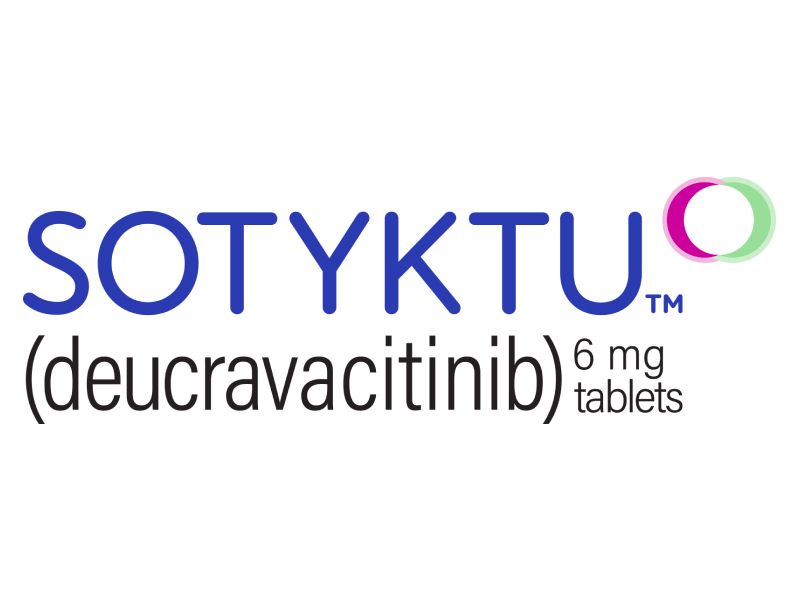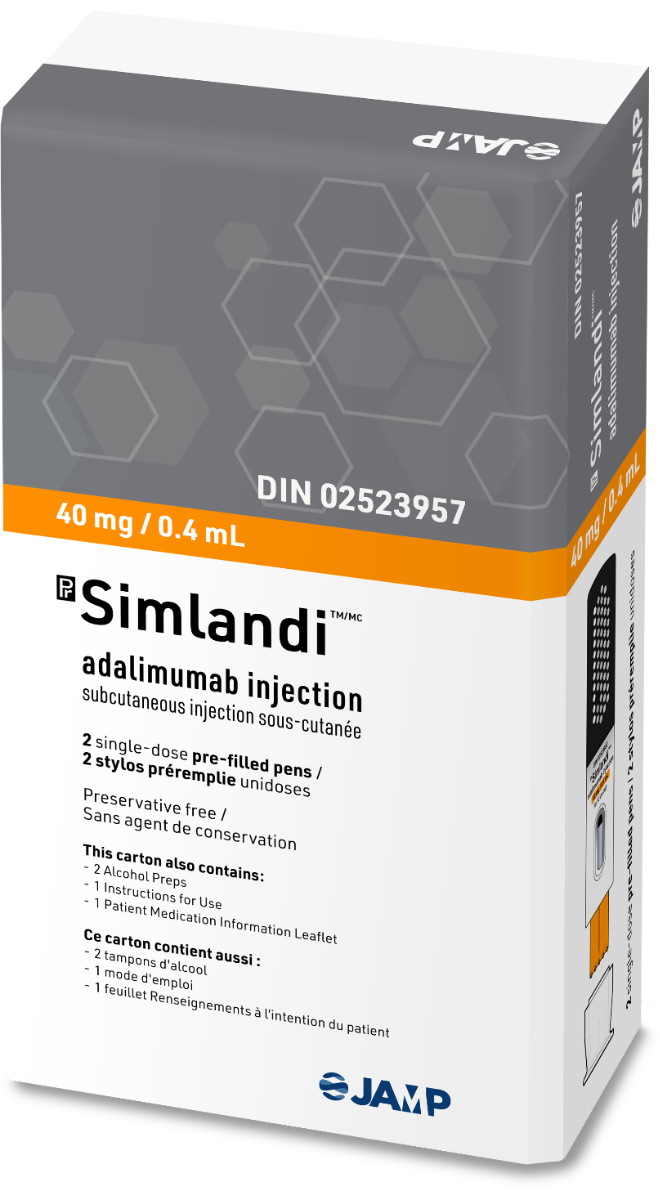Sotyktu (deucravacitinib) vs Simlandi (adalimumab-ryvk)
Sotyktu (deucravacitinib) vs Simlandi (adalimumab-ryvk)
Sotyktu (deucravacitinib) is an oral medication that works by selectively inhibiting the tyrosine kinase 2 (TYK2) enzyme, which is involved in the inflammatory process, and is approved for the treatment of moderate-to-severe plaque psoriasis. Simlandi (adalimumab-ryvk), on the other hand, is a biosimilar to the original adalimumab and is an injectable biologic that targets and blocks TNF-alpha, a protein that contributes to inflammation in various autoimmune conditions, including rheumatoid arthritis, psoriatic arthritis, and plaque psoriasis. When deciding which medication is right for an individual, it is important to consider factors such as the specific condition being treated, the route of administration preferred by the patient (oral vs. injection), potential side effects, and how the medication's action aligns with the patient's unique medical profile.
Difference between Sotyktu and Simlandi
| Metric | Sotyktu (deucravacitinib) | Simlandi (adalimumab-ryvk) |
|---|---|---|
| Generic name | Deucravacitinib | Adalimumab-ryvk |
| Indications | Plaque psoriasis | Rheumatoid arthritis, juvenile idiopathic arthritis, psoriatic arthritis, ankylosing spondylitis, adult Crohn's disease, ulcerative colitis, plaque psoriasis |
| Mechanism of action | Tyrosine kinase 2 (TYK2) inhibitor | Tumor necrosis factor (TNF) blocker |
| Brand names | Sotyktu | Simlandi |
| Administrative route | Oral | Subcutaneous injection |
| Side effects | Upper respiratory tract infections, increased liver enzymes, high blood pressure, oral herpes | Infections, injection site reactions, headache, rash, nausea |
| Contraindications | None known | Active tuberculosis, serious infections, hypersensitivity to adalimumab or its excipients |
| Drug class | Selective immunosuppressant | Monoclonal antibody |
| Manufacturer | Bristol Myers Squibb | Amgen |
Efficacy
Efficacy of Sotyktu (deucravacitinib) in Treating Psoriasis
Sotyktu, with the generic name deucravacitinib, is a novel oral medication that has demonstrated efficacy in the treatment of moderate to severe plaque psoriasis. As a selective tyrosine kinase 2 (TYK2) inhibitor, it targets a specific pathway in the inflammatory process that contributes to the development of psoriasis. Clinical trials have shown that patients treated with deucravacitinib experienced significant improvements in their psoriasis symptoms compared to those who received placebo. The primary endpoint in these trials was the Psoriasis Area and Severity Index (PASI) score, which measures the severity and extent of psoriasis. A significant number of patients achieved PASI 75, indicating a 75% reduction in the PASI score, which is a common benchmark for clinical efficacy in psoriasis treatments.
Long-Term Efficacy and Safety Profile of Sotyktu (deucravacitinib)
The long-term efficacy of Sotyktu is particularly noteworthy. In extended trials, the medication sustained its effectiveness over a longer period, with many patients maintaining their PASI 75 response. Additionally, the safety profile of deucravacitinib has been favorable, with the incidence of adverse effects being comparable to other treatments for psoriasis. However, as with all medications, it is important for patients to discuss potential risks and benefits with their healthcare provider.
Efficacy of Simlandi (adalimumab-ryvk) in Treating Psoriasis
Simlandi, which is a biosimilar to the well-known biologic drug adalimumab, has also been used in the treatment of moderate to severe plaque psoriasis. Adalimumab-ryvk works by targeting and neutralizing tumor necrosis factor-alpha (TNF-alpha), a cytokine involved in systemic inflammation. This mechanism can lead to a reduction in the inflammatory response associated with psoriasis. Clinical studies have demonstrated that adalimumab-ryvk can lead to significant improvement in psoriasis symptoms, with many patients achieving clear or almost clear skin, as measured by the PASI score and the Static Physician's Global Assessment (sPGA).
Comparative Efficacy and Considerations for Treatment Choice
When comparing the efficacy of Sotyktu (deucravacitinib) and Simlandi (adalimumab-ryvk), it is important to consider individual patient factors, including the severity of the disease, the presence of comorbidities, and previous treatment history. Both medications have shown to be effective in achieving significant clinical improvement in psoriasis symptoms. The choice between an oral TYK2 inhibitor and a subcutaneous TNF-alpha inhibitor may be influenced by patient preference, route of administration, and potential side effects. Healthcare providers should engage in shared decision-making with patients to determine the most appropriate treatment option based on the efficacy, safety profile, and patient-specific considerations.
Regulatory Agency Approvals
Sotyktu
-
Food and Drug Administration (FDA), USA

Simlandi
-
Food and Drug Administration (FDA), USA

Access Sotyktu or Simlandi today
If Sotyktu or Simlandi are not approved or available in your country (e.g. due to supply issues), you can access them via Everyone.org.
How it works

Make an enquiry
Choose the medicine you want to buy, answer a couple of questions, and upload your prescription to speed things up. We’ll get back to you within 24 hours.


Make an enquiry
Choose the medicine you want to buy, answer a couple of questions, and upload your prescription to speed things up. We’ll get back to you within 24 hours.


Breeze through the paperwork
We'll guide you through the required documents for importing unapproved medicine, ensuring you have all the necessary information.


Get a personalized quote
We’ll prepare a quote for you, including medicine costs and any shipping, administrative, or import fees that may apply.


Receive your medicine
Accept the quote and we’ll handle the rest - sourcing and safely delivering your medicine.

Some text on this page has been automatically generated. Speak to your physician before you start a new treatment or medication.
Let's talk
If you have any questions, call us or send us a message through WhatsApp or email:
Contact us




